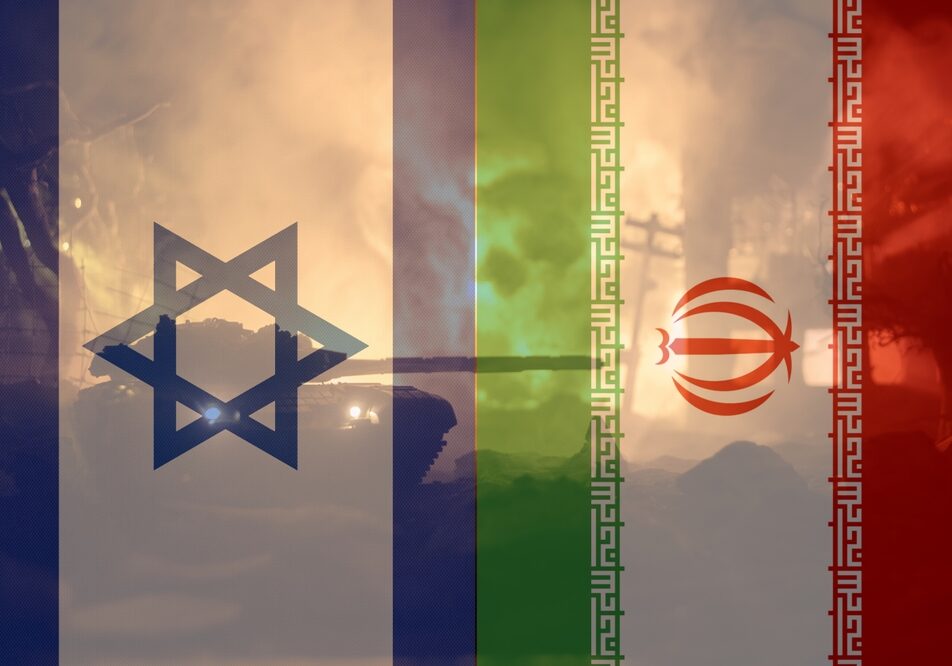Australia/Israel Review
Editorial: The Rules of Engagement
Mar 31, 2009 | Colin Rubenstein
By Colin Rubenstein
Since taking office in January, US President Barack Obama has made outreach to US adversaries – in particular Iran – a hallmark of his foreign policy. His overtures have included an entreaty for Teheran and other hostile regimes (such as Syria) to meet America’s outstretched hands by “unclenching” their fists; giving his first interview as president to an Arab satellite channel, al-Arabiya; and just last month recording a video message for the Persian New Year addressed both to the Iranian people as well as their leaders.
Closer to home, efforts to engage with Iran’s leaders are recalled by the privately-sponsored visit to Australia of supposed reformer Mohammed Khatami. Khatami, of course, was president of Iran the last time ‘engagement’ was the catchword for relations between Teheran and the West.
Meanwhile, the new Netanyahu-Barak-Lieberman Israeli government is likely to view the Iranian nuclear program as its top foreign policy priority.
Given these developments, it is an appropriate time to explore whether a policy of engagement with Iran can be successful and how to at least avoid the potential pitfalls that have doomed similar efforts in the past.
First, it’s important to note – as demonstrated by the West’s attempts to improve relations with Iran under Khatami – that Obama’s approach is not actually a new policy. To the contrary, for the past 30 years every US administration has tried to use diplomacy and “engagement” to resolve the West’s conflicts with Iran – its support for international terrorism, pursuit of nuclear weapons and destabilising impact on the Middle East.
For instance, despite conventional wisdom, senior US officials from former President George W. Bush’s administration met with an Iranian counterpart at least 27 times. President Clinton offered unstinting apologies for past American policies, only to be rebuffed by Khatami – despite the latter’s espousal of a “dialogue of civilisations”.
Similarly, since late 2002 the EU – led by the so-called “EU-3” of Britain, France and Germany – has been pursuing an engagement-based strategy to resolve the stand-off over Iran’s nuclear program. And prior to Iran’s illegal covert uranium enrichment efforts being outed that year (while Khatami was president), European policy toward Iran was based to an even greater degree on increasing trade and conciliation. All to no avail.
Indeed, the conduct of the so far unsuccessful negotiations between the EU-3, UN Security Council and Teheran points to important lessons for the current engagement approach. Most important of these is that time is of the essence.
Most analysts agree that Iran could potentially have a nuclear weapon within the next one to two years. The most recent International Atomic Energy Agency (IAEA) report revealed that Iran’s stockpile of low-enriched uranium is now sufficient for at least one nuclear weapon if enriched further.
The Obama Administration, and by extension the international community, cannot allow Iran to use the fig leaf of negotiations to stall for time as it completes its nuclear program. Unfortunately, this has been the classic pattern of Iran’s negotiating style, most prominently while Khatami was still president. As one of his former spokesmen recently described Khatami’s approach to “engagement”; “We had one overt policy, which was one of negotiation and confidence building, and a covert policy, which was continuation of the [nuclear] activities…”
Current Iranian President Mahmoud Ahmadinejad has employed elements of the same strategy, repeatedly hinting that Iran is close to responding positively to EU-3 and UN offers but then never doing so with any substance. All the while, the Iranian nuclear program has steadily advanced.
Rather than allow Teheran to again stall for time, President Obama should put a firm deadline on the negotiations and on whatever “carrots” the US is offering Iran.
Obama and the international community must also hold firm in refusing to allow Iran to enrich uranium on its own, even under international safeguards. Iran’s past deception and stonewalling of the IAEA and repeated revelations by the nuclear watchdog itself of large areas of ignorance about elements of Iran’s program demonstrate the folly of this approach.
At the same time, Obama must prepare a menu of strengthened multilateral sanctions – the “sticks” – against Iran that are ready to be implemented immediately after the negotiations expire. Should the negotiations fail, the process of engagement will necessarily have consumed precious time available to stop Iran from obtaining a nuclear capability.
Here, Obama’s outreach will hopefully lay the groundwork for the type of stringent sanctions on Iran’s oil and financial services industries that will be necessary should ‘engagement’ fail. Correctly or not – and the evidence clearly points to ‘not’ – the alleged failure of the Bush Administration to engage with Iran is often cited as a reason for the failure of the negotiations. But by going the extra mile, Obama will have demonstrated that the US is not the obstacle to improved relations between Teheran and the West.
The response to Obama’s overtures by Iran’s leaders so far has been telling – and disappointing. In his New Year’s message, Obama heaped praise on the “Islamic Republic of Iran”, calling on it to assume “its rightful place in the community of nations”.
Yet Iranian Supreme Leader Ayatollah Ali Khamenei – the ultimate decision-maker in Iran – immediately rebuffed Obama’s outreach and demanded “real changes” in US policies as well as apologies for a long list of grievances against the US. Khamenei also said that Iran would not stop its nuclear program.
If the Iranian leadership maintains this hard line, Obama’s new and improved engagement strategy will, unfortunately, prove as unsuccessful as prior efforts. Let’s hope there will still be time to pursue the sanctions route, and that a nuclear-capable Iran hasn’t already become a fait accompli.
Tags: Iran






